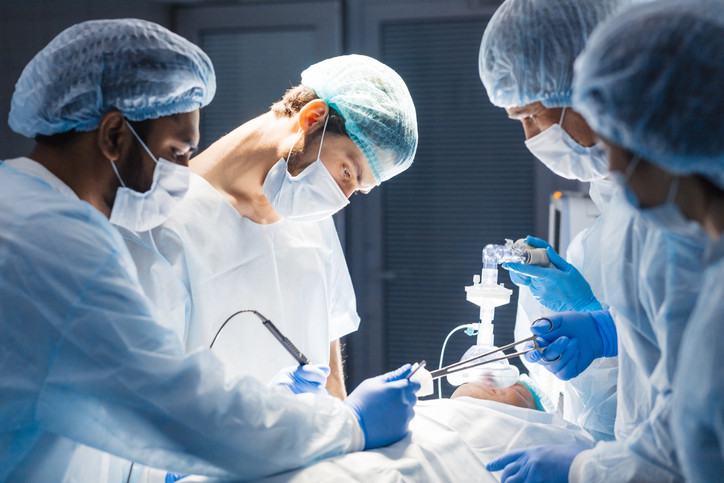When caring after surgery, people typically want help returning to everyday life. Most patients aren’t afraid to ask if they can start working out, playing sports, or enjoying intimate relationships again.
But we find that many individuals are more hesitant to ask if they should stop drinking alcohol before surgery or if they can start drinking again after the process.
If you’re one of the people who had surgery and are thinking about when you can open a bottle to mark your newfound confidence, this article is for you.
Table of Contents
ToggleCan You Have Alcohol Before Or After Surgical Procedures?

For everyone’s health and safety, staying away from drinking for at least 48 hours is advised before your surgery. Using alcohol can cause severe issues before or following the surgery. It may lead to prolonged hospitalization and an extended period to get better generally.
Minimal to moderate drinking usually won’t boost the chance of issues after surgery. But the danger gets more significant the more you drink. Even drinking two or three drinks per day could damage your immune system.
Effects Of Drinking Alcohol Before Surgery
If you have issues with drinking, surgery issues are likely to occur. But any binge drinking incident or one drink before surgery may trigger issues.
Increase In Bleeding
Every surgery causes some bleeding. To prevent bleeding, the body forms a clot. Alcohol will thin the blood and mess with the procedure, which boosts the likelihood of bleeding out of control.
The impact is more significant when you use blood-thinning drugs or have an illness that causes your blood to clot less effectively, like hemophilia.
Trouble With Anesthesia
General anesthesia uses potent drugs that suppress breathing, heartbeat, and blood circulation. Alcohol affects the same body parts. All of these chemicals are processed by the liver, which could not be possible to keep up.
Also, both anesthesia and drinking may cause nausea and vomiting. This could make you aspirate (breath in vomit), which can be deadly. If booze is in your body or you drink a lot, the anesthesiologist might have to modify the dose.
If a bigger dosage of anesthesia is required, it may raise the likelihood of cardiac arrest, particularly if you have previous heart issues. Your vital statistics will be constantly monitored by the doctor, who will implement adjustments as appropriate.
What Would Happen If You Consume Alcohol After Surgery?

If you consume too much alcohol, it may harm the liver, kidneys, heart, immune system, and stomach. All of these organs are vital while you heal from surgery. How booze affects the immune system and liver affects your body’s capacity to recover after surgery.
Further, drinking a lot may harm the body’s everyday “stress” reaction, worsening medical issues. Alcohol is connected with a variety of problems after surgery, like:
- Exhaustion
- Heavy Bleeding
- Dehydration
- Increase The Likelihood Of Swelling
- Healing Troubles
- Effects Of Anesthesia
- Heart And Lung Issues
- Dangerous Combination Of Medicines And Alcohol
- Infections
Booze affects any surgeries and procedures. Studies indicate those who drink over two drinks per day are prone to face issues after surgery compared to people who don’t drink at all or only drink occasionally.
When you consume excessive alcohol following surgery, you could be required to stay in the hospital for prolonged or obtain essential treatment.
When Should You Stop Drinking Before Surgery?
Wishing to chill before an extensive surgery is common, but you should avoid drinking alcohol. By restricting alcohol in the days before your treatment, you offer the body an ideal chance of recovering well.
Alcohol may impact anesthesia and sedatives, which can cause significant issues. Most doctors advise patients who plan to have surgery to abstain from alcohol at least a week before. This advice could vary differently for your process, but it’s an ideal practice rule.
If you drink booze before surgery, obtaining your anesthesia at the proper amount may be tricky. You don’t want to drink booze before surgery since it may reduce your pain tolerance. If you drink heavily before surgery, you could be forced to remain in the hospital or get transferred to a particular care facility.
Typically, you shouldn’t drink booze for at least two weeks after surgery, but even then, you shouldn’t do so until you’re done taking any painkillers or antibiotics your doctor offered you. This is because drinking booze while taking painkillers can be harmful.
You could hurt the injuries or stress yourself. Additionally, drinking can make your post-op swelling last longer. Take your surgeon’s advice about drinking alcohol after surgical procedures, and don’t drink a lot if you start again.
While two weeks is a reasonable time limit for many patients, you should always talk to the doctor to find out if it’s okay to start drinking alcohol again after your surgery, depending on how you recover.
What Are Alcohol Withdrawal Symptoms?
If you exhibit any of these symptoms after drinking less or quitting altogether, you could face alcohol withdrawal. A couple of indications are:
- Experiencing Or Hearing Things That Don’t Exist (Hallucinations)
- Not Feeling Well
- Getting Seizures
- Sweating
- Trembling
- Experiencing Difficulty Sleeping (Insomnia)
- Feeling Sad, Nervous, Or Angry
When you’re experiencing these symptoms, you must see a doctor. You could require medications to assist with lessening them. You can start drinking alcohol but never drink alcohol excessively.
Tips About How To Slow Down On Drinking
If your doctor hasn’t told you it’s a big problem, you may still want to reduce or quit drinking because of a larger plan to stay healthy and fit before your surgery. Consider when you usually drink and how to change these habits.
- Consider how you’ll handle this if you typically drink more with friends. You could choose alcohol-free drinks, have smaller servings, and switch every other glass with a non-alcoholic one.
- Do you consume alcohol whenever you prefer to chill and enjoy TV at night? Try thinking of something healthy to enjoy instead.
- If you constantly have a glass of wine with dinner, consider getting your drink lesser. Replace the wine with water or a different non-alcoholic drink at least a few times weekly.
Conclusion
No matter the sort of surgery you have, there remains a risk. Drinking alcohol before or after surgery without telling the doctor that you have issues with alcohol can only make the risk greater.
But what about only a tiny amount of alcohol? Drinking any amount of booze before or after surgery is risky, and it’s simply not worth it. Therefore, you should never drink booze before or after surgery. For a minimum of 48 hours before the operation, avoid the consumption of booze.
A more significant advantage would have been to cease using it a week or two sooner. Talk to your doctors about drinking before and after surgery. This vital knowledge can assist them in figuring out how to help them get a good result.

I am a passionate beer connoisseur with a deep appreciation for the art and science of brewing. With years of experience tasting and evaluating various beers, I love to share my opinions and insights with others and I am always eager to engage in lively discussions about my favorite beverage.
















